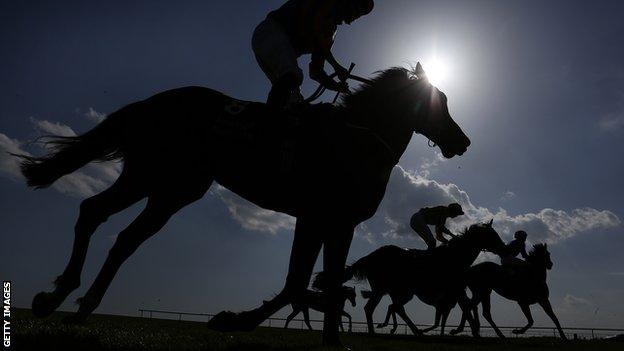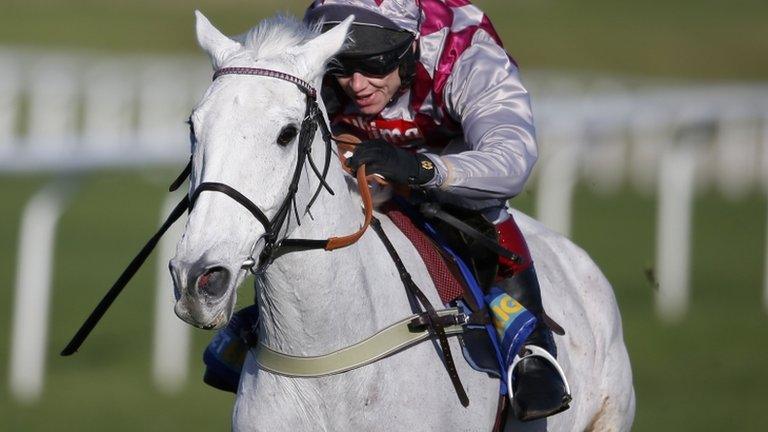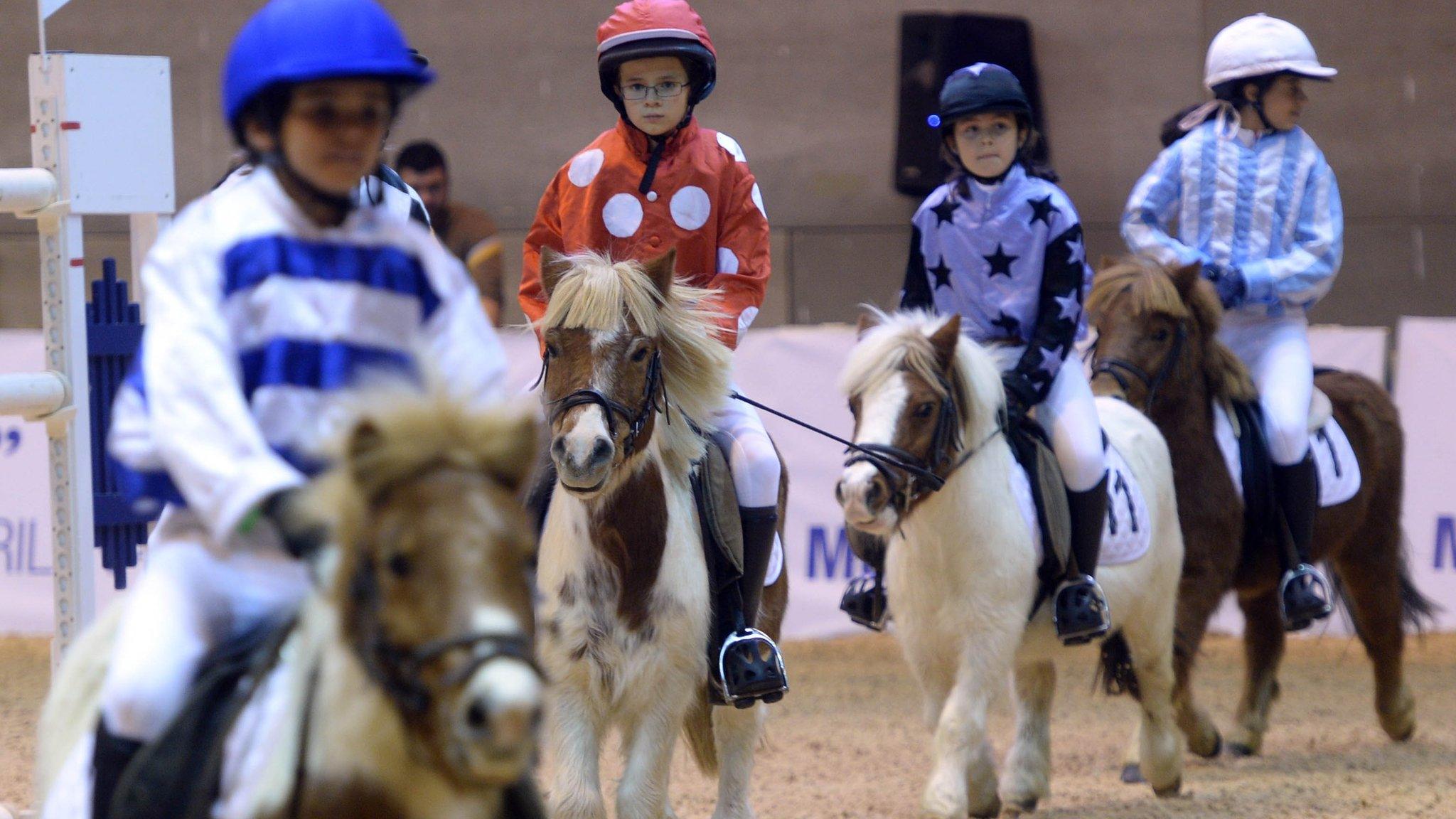Herpes virus closes National Stud in Newmarket
- Published

National Stud at Newmarket has been operating since 1915
The National Stud breeding site has been closed following the discovery of a neurological herpes virus infection.
The virus was found in a maiden filly, which arrived from France on 20 January and has been fully vaccinated, in the health isolation unit.
Five stallions are currently based on the outskirts of Newmarket at the 500-acre National Stud, which supports the thoroughbred breeding industry.
They include former Group One-winning racehorses Toronado and Dick Turpin.
"This is an isolation unit and we've taken every necessary precaution," managing director Brian O'Rourke told BBC Radio Cambridgeshire.
"That one isolation unit is shut down for 30 days automatically.

Newmarket is the headquarters of British Flat racing
"The staff at the unit do not go to the main farm, which is a good mile and a half from the isolation unit.
"We are hopeful that if we have no more setbacks, hopefully with consultation with a team of vets and the animal health trust, we've got a second gate that we might be able to open up the stud in time for the start of the breeding season around 15 February.
"With having 3,000 racehorses on our doorstep in Newmarket, six stallion stations and all those having a lot of mares coming in from overseas and domestically, we have to be seen to set the standard."
The stud, owned by the Jockey Club, is also closed for public tours until further notice.
O'Rouke added: "This is a highly infectious disease and we have to take every precaution possible and we did that and did it quickly."
'Isolation is important'
World Horse Welfare chief executive Roly Owers said the virus can have serious consequences, but adhering to the equine industry's code of practice should ensure it is controlled.
"Equine herpes virus is a common virus that can cause respiratory disease and abort foetuses, so it is a particular concern for breeding mares," he told BBC Sport.
"There is also a less common neurological form of the disease, which can vary from mild incoordination to total paralysis, and can be fatal. The virus can spread rapidly, which is why isolation is so important."
- Published4 May 2013
- Published30 January 2016

- Published21 December 2018
